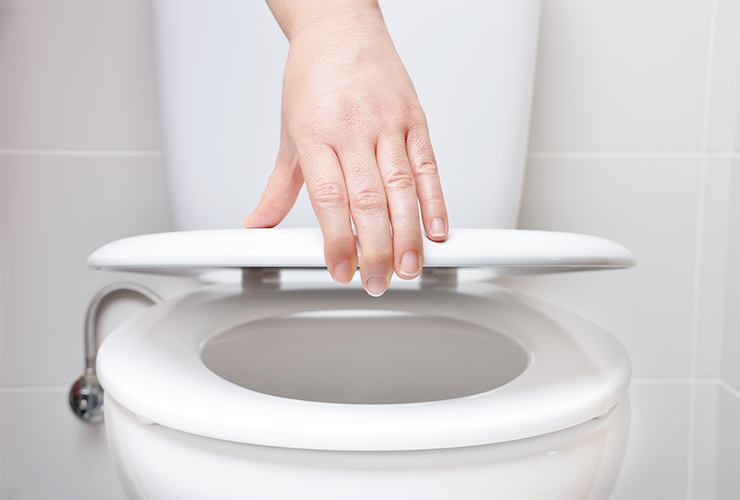
An introduction to the world of pain
You are having a great life. One fine day out of the blue, you start feeling an unfamiliar discomfort. The unease resumes whenever you start to urinate.[1] Before understanding the gravity of the situation, the burning sensation gets stronger. It comes to a point where you can no longer function normally. This is probably the first time you googled and learned of dysuria.
Even though this situation is scary and the pain is too much for you to bear, rest assured. It can be treated. In this article, you will learn a bit more about Dysuria than ever before.[2]
What is Dysuria?
Dysuria is a disease where you begin to feel discomfort whenever you urinate. When it comes to feeling pain during urination, this word comes out the most. Its occurrence is frequent in women. Among males, older men tend to get more infected.[3]
Most of the time it is the urinary tract that gets infected in women. On the other hand, urethritis and certain prostate conditions are seen to be the common cause in men.
Why does it happen?
Dysuria can happen due to several reasons. The notable ones include UTI, inflammations and irritations. STDs are sometimes found to be the source behind dysuria.[4]
Urinary Tract Infection(UTI)
UTIs are a major cause. They can appear practically anywhere throughout your urinary system. Kidneys, urethra- even the bladder can get infected. Bacterias are the usual reason behind these.
Certain factors elevate your chances in having a UTI. They include diabetes, or an enlarged prostate. Kidney stone patients are also susceptible to an UTI.[5]
Apart from the usual ache, a person may exhibit additional symptoms.
- The person may have a fever.
- He/she will experience several urine issues. An affected person may discharge foul-smelling urine. Sometimes the patient can discharge completely cloudy urine. Doctors also observed that the patient shows an increased urge to urinate.
- A vaginal infection may develop into a UTI. The most likely type is a yeast infection. You can notice changes in vaginal discharge and a foul smell in this case.
Inflammations and Irritations
Inflammation and irritation can also lead to dysuria. Complications in the urinary tract may become the reason behind inflammation. Stones blocking the urinary tract, irritation due to sexual activity, presence of a cyst, bladder inflammation all these things can cause Dysuria.[6]
Noticeable symptoms
- In the case of cystitis, you will experience frequent urination almost all the time. You will lose bladder control, you can even experience pain in areas near the bladder, you will have cloudy urine with a foul smell.
- In the case of pyelonephritis, you might experience severe pain in the upper back. You can also get a high fever. Or you can be nauseous due to this symptom. And you can also get an intense urge to urinate.
- In the case of urethritis, you will observe discharges from the urethra. Partners or people with urethritis who got urethritis as an STD often stay asymptomatic.
- If you have vaginitis, you will most likely experience pain, soreness, or itching near or inside your genital. You will also experience a foul-smelling vaginal discharge. You are likely to experience pain during sex, if you have vaginitis.
Diagnosis
The good news is that people mostly experience this as an occasional episode. Often an casual irritation- it does not require to be treated. However, it’s highly recommended that you pay a visit to the doctor if you start to experience pain for a long period of time.[7]
During the visit, your doctor will most likely look for symptoms. You will go through a kidney test. Your genitals will also be examined. If you are a woman, you will be asked to go through a pelvic exam. If you are a male and have problems regarding the prostate, you might then have to go through a rectal exam.[8]
The doctor might also conduct a urine test if the source of your pain is ultimately an infection in your bladder. During the visit, the doctor might ask you about your sexual history.[9]
Prevention
- Make a habit of drinking lots of water daily to flush out your urinary tract. This way, you can avoid dysuria if it’s caused by cystitis or pyelonephritis. It’s a good habit to urinate soon after you have sex. This helps to avoid bacterias moving into your bladder.
- Always keep the genitals and its surrounding area clean and dry. Grooming portions regularly, and avert using irritating soaps. Vaginal sprays can also help.
- To avoid irritation when it comes to children, start with limiting the bubble baths. Always wash your kids thoroughly and gently after they come back from playing in the sand, or in wet swimsuits. Remember all of these can potentially lead to irritation.
- To avoid dysuria from STDs- always go after safe sex methods. Use a condom whenever you have sex.
- Avoid using public toilets as much as possible. They can spread dangerous infections. Many of these can cause dysuria.
Conclusion
A single painful episode is nothing to be worried about. It recedes completely if you use the antibiotics prescribed by your physician. You really don’t need to worry that much. The odds of a persistent long-term injury in most situations is really small.[10]
Nevertheless, if not identified and treated timely, women sometimes can face fertility issues. If the problem persists for a longer period of time, do not hesitate to consult a doctor.[11]
A condom is your best friend. You can avoid a pregnancy, as well as STDs. Even dysuria- if the source of the disease is an STD. Be vocal about it, talk to your partner if you have to. If you start taking precautions you can save yourself from catching it.
Drinking plenty of water is one of the best things you can do. Always keep yourself sufficiently hydrated to fight off dysuria. Improve your overall hygiene. Keep yourself and your genitals clean. You should be fine if you stay a little cautious.[12]
[1] https://www.ncbi.nlm.nih.gov/books/NBK549918/
[2] Dysuria: What You Should Know About Burning or Stinging with Urination. Am Fam Physician. 2015 Nov 01;92(9):Online. [PubMed]
[3] Michels TC, Sands JE. Dysuria: Evaluation and Differential Diagnosis in Adults. Am Fam Physician. 2015 Nov 01;92(9):778-86. [PubMed]
[4] Geerlings SE. Clinical Presentations and Epidemiology of Urinary Tract Infections. Microbiol Spectr. 2016 Oct;4(5) [PubMed]
[5] https://www.ncbi.nlm.nih.gov/books/NBK291/
[6] https://pubmed.ncbi.nlm.nih.gov/26554471/
[7] Sinnott JD, Howlett DC. Urinary frequency and dysuria in an older woman. BMJ. 2016 Sep 13;354:i4587. [PubMed]
[8] https://pubmed.ncbi.nlm.nih.gov/11989635/
[9] Artero A, Esparcia A, Eiros JM, Madrazo M, Alberola J, Nogueira JM. Effect of Bacteremia in Elderly Patients With Urinary Tract Infection. Am. J. Med. Sci. 2016 Sep;352(3):267-71. [PubMed]
[10] Bremnor JD, Sadovsky R. Evaluation of dysuria in adults. Am Fam Physician. 2002 Apr 15;65(8):1589-96. [PubMed]

